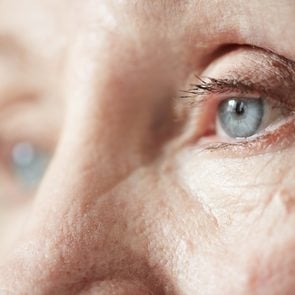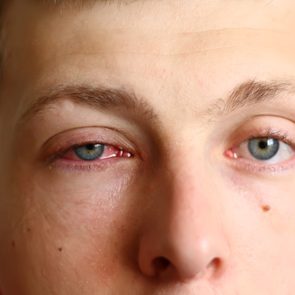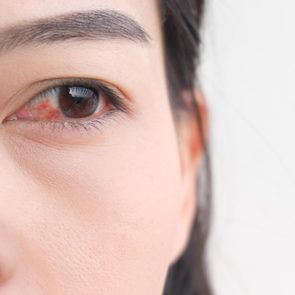6 Home Remedies for Pink Eye
Updated: Oct. 05, 2021
Pink eye causes a host of bothersome symptoms. Fortunately, most cases resolve on their own, and there are steps you can take at home to relieve the discomfort.
Home remedies for pink eye
Pink eye, also known as conjunctivitis, is a broad term for a variety of ailments that can make one or both eyes appear red or pink.
Viruses are the most common cause of pink eye, followed by bacteria and allergies. Antibiotics are sometimes used against bacterial pink eye, but in many cases there are few good treatment options for conjunctivitis, aside from trying to relieve the symptoms.
The good news is most cases go away on their own in a week or so, and there are fast ways to tame the redness, itching, or burning at home.
Here’s how to treat pink eye at home fast, with the help of some home remedies.
Apply warm or cool compresses
A simple compress can relieve some of the inflammation and some of the discomfort of conjunctivitis, according to Leonard Pollack, MD, head of inpatient pediatrics at Henry Ford Medical Center in Detroit.
This is just a cool or warm moist washcloth or towel placed over your eyes for a few minutes three or four times a day.
An added benefit is that compresses can start to clear away any discharge from your infected eye.
Be sure to use a clean washcloth each time you apply the compress, so you don’t spread the infection to the other eye, using different cloths for each eye if the pink eye has already spread.
(You may be interested in 9 subtle signs of a dangerous eye infection.)
Wipe away the discharge
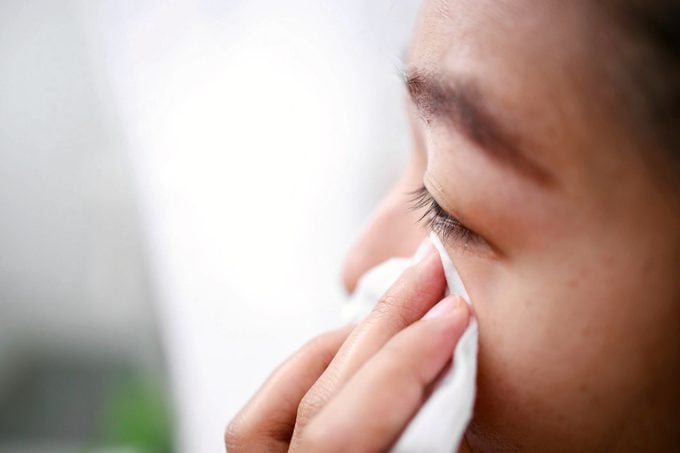
Pink eye, especially bacterial pink eye, can come with a crusty discharge. It’s a good idea to gently dislodge and get rid of this when it builds up.
A compress will help soften the discharge, says Hussam E. Banna, MD, an ophthalmologist with the University of North Carolina School of Medicine in Chapel Hill.
He then recommends dabbing the discharge at the corner of the eye with a clean tissue while avoiding directly touching the eye surface.
Again, make sure you don’t reuse any tissue or cloth that touches your infected eye.
Sometimes conjunctivitis is caused by exposure to chemicals or other irritants, like shampoo or even a stray eye lash. If this happens, rinse your eye with cold or lukewarm water.
Try over-the-counter eye drops
Over-the-counter eye drops can help relieve discomfort, though they won’t affect the underlying cause.
“Artificial tears will wash out the virus and clear toxins that viruses produce,” says Sonal Tuli, MD, a clinical spokesperson for the American Academy of Ophthalmology.
Choose artificial tears over products like Visine that promise to get the red out. “These cause a rebound of symptoms when the eye drops are stopped,” Dr. Banna says. “Artificial tears and antihistamine drops offer good symptom relief.”
If you have bacterial conjunctivitis, a doctor may prescribe antibiotic eye drops as well, Dr. Pollack says.
Look for antihistamines
The best way to deal with pink eye from allergies is to avoid the trigger, be it ragweed pollen or dust mites.
If that’s not possible, over-the-counter antihistamines may alleviate symptoms like itchiness—and keep you from further irritating your eyes.
“If you can decrease the itching, you’re less likely to be rubbing at your eyes with your hands,” Dr. Pollack says.
Some eye drops contain antihistamines.
Over-the-counter pain relievers like ibuprofen can ease pain caused by allergic and other forms of conjunctivitis.
Avoid makeup and contact lenses
At least for the duration of the infection. This will minimize irritation and any chances of reinfection.
When the infection has resolved, start with a new pair of contact lenses (if you wear disposable ones) and throw away the case and any unused solution.
You should also ditch any makeup that may have come into contact with the infected eye. This includes brushes and other applicators.
(Learn about other risks cosmetics may pose.)
Wash your hands
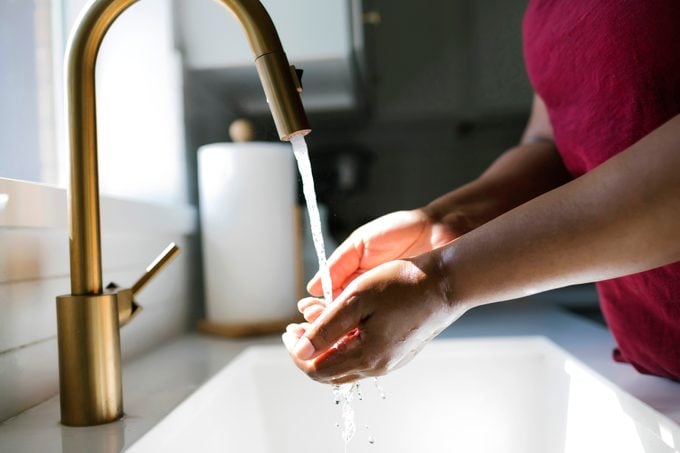
If you have conjunctivitis in one eye, it can easily spread to your other eye, not to mention other people. Cut the risk by washing your hands and washing them often, especially before and after touching your eyes or face.
You should also avoid sharing towels, bedsheets, pillows, and washcloths. Wash any laundry from an infected person separately from others in your household.
When to see a doctor
While most cases of pink eye resolve on their own, a rare few could go on to become more serious.
Any pain, visual changes, excessive discharge, or worsening of your symptoms are reasons to seek medical attention, Dr. Pollack says. That may also be wise if you experience pink eye along with any of the other, more common symptoms of Covid-19, like a cough shortness of breath.
Now that you know these home remedies for pink eye, check out the connection between Covid-19 and conjunctivitis.

















